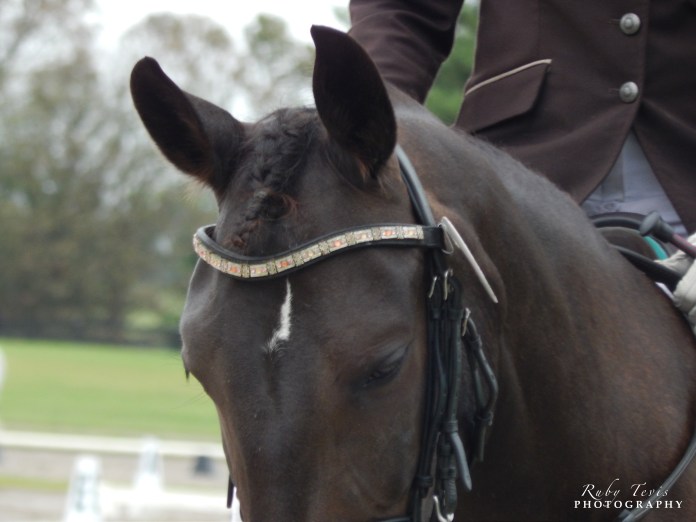By Ruby Tevis
It’s that time of year again! Summer is over, the show season is wrapping up, and it’s time to go back to school. For college freshmen, this can be a fun and scary time. Questions like, “Will I fit in?” and, “What classes should I take?” are rushing through the heads of every freshman this time of year. For equestrians, however, the questions sound more like, “Should I bring my horse?” and, “Can I still show?” These answers will usually come through trial and error. While every situation is different, here are a few tips to get started.
Scheduling Classes Wisely
Scheduling your first semester is one of the most fun, but often stressful, rites of passage for any student. Before you can consider what kind of time you can allow for horses, you must build a schedule that works for you. You shouldn’t overload yourself for your first semester, or first year for that matter. It is a good idea to stick to 12-15 credit hours until you get the hang of things.
It can be daunting to look at all the options available to you. The best place to start is with 100-200 level general education classes. These classes are geared toward freshmen, and these professors can offer resources to make your transition smoother. Talk with your advisor about scheduling classes close together, so you are not on campus waiting for class to start when you could be out riding! If you are considering showing during college, think about leaving Fridays open so you don’t have to miss class.
Online classes can be a great alternative to sitting in class. If you are a self-motivated individual, online classes offer the opportunity to do assignments on your own time.
Bringing Your Horse
If you are moving away for college, many students wonder if it is a good idea to take their horse. Typically, it is best for students to wait until after the first semester. This way, you can settle in for a few months beforehand. After your first semester, you should ask yourself a few questions. Can I afford it? Do I have time? Who will I train with? Where will I board?

Also, consider if you can afford full-care board. School always comes first, and missing class to clean your stall is not an acceptable excuse. There are days you will find yourself in the library from 8 AM to 8 PM studying. With full-care, you can be sure your horse is cared for while you take time to focus on your studies. After all, that’s what college is all about!
Finding Opportunities
If you cannot bring your horse, or don’t own one, don’t be distraught! There are several options available to gain saddle time. First, look into colleges that offer riding programs. The Intercollegiate Dressage Association (IDA) is growing across the country and can be a great way to ride and compete while representing your school.
If your heart is set on a college without an IDA team, reach out to local trainers. Most trainers offer open doors to hardworking young students and may even work directly with your school so your work can count for internship credit. Becoming a working student can lead to great opportunities, such as working with young horses or leasing a schoolmaster.
In the case there are no dressage trainers in the area, don’t discount eventing and hunter/jumper barns. Any saddle time is good saddle time, and all horses can benefit from flatwork. These trainers are probably thrilled to take on a student with an interest in dressage.
Competing Recognized
Going to college doesn’t mean you have to sacrifice competing. Once you’ve decided to bring your horse, or have found an opportunity to ride elsewhere, you may consider getting into the show ring.
Since many shows are held over a three-day period, it is critical to let your professors know your plans before you sign up for the show. Ask them if they have any important tests or presentations planned for those days. Many times, professors will try to work with you about completing assignments early. Missing class is not detrimental if you are able to complete your work ahead of time and give your professor plenty of notice. However, if your show happens to fall on a final exam date, don’t miss class! This is when prioritizing becomes crucial.
Balancing the Workload
As a busy student and equestrian, your planner should be your best friend. Keeping an agenda and a to-do list is crucial for organizing your priorities. Make riding your reward after completing all of your assignments. Be prepared for early mornings and late nights cramming all of your activities into one day. Leading a busy lifestyle takes discipline, but that doesn’t mean you can’t have fun! As long as you stay organized, having fun is just as important as school work and riding.
If you find yourself struggling, your school offers resources like tutoring, advising, and counseling services. These programs are designed to help you – take advantage of them! Communication is key when you are under pressure. Don’t hesitate to talk about what you need. Your professors, and your trainer, won’t read your mind. If you feel overwhelmed, or need to cut back on barn time to focus on school, the best thing you can do is communicate. Chances are, they’ve been in your shoes before.
Now that you have embarked in this new chapter in life, take college by the reins! This is your college experience, and you can make it anything you want it to be. The most important part is to have fun and enjoy your experience. Happy studying (and riding too)!
















[…] “Five Tips for College Freshmen” by Ruby Tevis […]